

Africa: The History of tourism in Nigeria and the 25 people that transformed the environment

Tourism, according to United Nations World Tourism Organisation “comprises of the activities of persons traveling to and staying in places outside their usual environment for not more than one consecutive year for leisure, business and other purposes.”
In Nigeria, tourism is centered around activities happening in the country such as festivals. Also, attractions such as parks, cultural sites and Natural sites also contribute to tourism in the country. The tourism industry in Nigeria as come a long way and has evolved overtime due to footprints of individuals in the tourism space who have ensured that the sector play an important role in the growth of the economy.
This perhaps has made successive government in the past to pay attention to the sector .
Presidents Ibrahim Babangida and Olusegun Obasanjo have been credited for making efforts to grow tourism in Nigeria during their various administrations. Under the administration of Gen.
Ibrahim Babangida, the NTDC came into being effectively in 1992. The corporation was established by Decree No. 86 of 1991. The Nigerian Tourism Development Corporation started out as Nigerian Tourist Association in 1962 before it was changed to NTDC in 1992.
Chief Olusegun Obasanjo created The Federal Ministry of Tourism and Culture in June, 1999 to promote the nation’s rich tourism potentials and cultural heritage through identification, development and marketing of the diverse cultural and tourism opportunities.
And by mid 2006, the ministry was renamed Federal Ministry of Tourism, Culture and National Orientation. In 2005, Chief Olusegun Obasanjo, set up a Presidential Committee to come up with a Nigeria Tourism Development Master Plan. This was with the active support of key Tourism bodies including the UNWTO and one Tourism Development International Ltd, a Nigerian firm.
Before Presidents Babangida and Obasanjo administrations, there have been people making all the difference in the tourism development in Nigeria since 1960. We had Audu Bako under The Gowon Administration who Built the Bagauda Lake Resort in Kano He is the Best State Admistrator 8n the Area of Tourism in Nigeria.
Below is a list of 25 of people we shortlisted from a Long Line of Pioneers. They are arranged in no particular order of Importance.
1. Ignatius Amaduwa Atigbi was born on May 24, 1930 in Warri, Delta State of Nigeria. Atigbi was the then Secretary-General of the Nigeria Tourism Association (NTA), now Nigeria Tourism Development Corporation (NTDC), and Chairman of Africa Travel Commission (ATC).

At executive committee meeting of the formal International Union of Official Travel Organization [IUOTO] held in the Istanbul, Turkey in 1971, Atigbi as head of the Nigerian and African delegation to the meeting as Secretary General of the Nigeria Tourist Association (NTA) and Chairman of African Travel Commission respectively stood to move a historic motion that the house endorses the commemoration every year of September 27 as World Tourism Day.
The motion was carried with unanimous votes and thus emerged the celebration of the Annual World Tourism Day ceremony that has since been adopted by IUOTO’s replacement, the World Tourism Organization (WTO) and now the United Nations World Tourism organization (UNWTO).
2. Ebaboje Matthew Da’Silva: The World Famous Mr. Tourism of Nigeria Past President of the Travel Agents Association. Past President and Founder of NATOP. Pioneer Prwsident and Founder of ANJET. Past Director at Nigeria Tourism Board. Former Contestant to UNWTO office of Secretary General. Member of the Nigerian Tourism Masterplan Committee. Author and Columnist with the Vanguard Newspapers he was the Biggest Voice for Tourism in Nigeria until his death.
3. Dr. Franklin John Adesoji Adejuwon: Pioneer Commissioner of Tourism in Nigeria. He was born on 27th September 1943. Dr. Franklin Adejuwon has contributed to the overall civil and public services in Nigeria as well as the country’s International Relations from the level of consultant, Senior Research Officer through to the position of the Chief Executive of the National Tourism Organization.

He was subsequently appointed Honourable Commissioner for Home Affairs and Tourism in Lagos State and later Hon. Minister of State in the Ministry of Agriculture and Natural Resources at the Federal Level. He has represented the country in different capacities at International fora including vice chairmanship of the Executive Council of the World Tourism Organisation, member of TCPC and chairman of the technical committee of the general assembly of the World Tourism Organization. He is also the first Tourism PHD graduate in Nigeria.
4. Chief Mike Amachree: The Father of Tourism in Nigeria Born on the 21st of September 1940 is a native of Buguma, Rivers State, educational background as a graduate of Yaba College of Technology, work experience as manager at Bristow Helicopters and others, public appointments as many and in most places being the first and a pathfinder as First National President Association of Travel Practitioners in Nigeria, ATPN.
Chief Amachree fondly called ‘Father of Tourism’ as evidenced in his works and the establishment of Brooklyn Hotels. He is the first Nigerian to organise a Private Sector led Abuja Carnival, first Nigerian to evolve the concept of ‘Point and Kill’ pepper soup, and many other awards. And in 2017, he was awarded Distinguished Service Star of Rivers State by the Governor of Rivers State.
5. Elder High Chief Jerry Onuoha Ibe Nwosu: Founded the National Association of Nigerian Travel Agents (NANTA). More than 40 years since it was founded, NANTA has metamorphosed into one of the biggest travel associations on the African continent. Elder High Chief Onuoha Ibe Nwosu is a double title holder of the ‘Nwa Chinemerem 1’ of Ofeme and also the ‘Kadurumba 1’ of Ihite, Ezinihitte, Mbaise in Imo State.
He joined the aviation and travel industry in November 1956 as typist/messenger with World Tourism Office, a travel agency owned by a Lebanese businessman Mr. Eduardo Aouad and located at 37 Ereko Street at Idumota, Lagos. From that humble beginning in 1956, he quickly rose and became General Manager of Scan Travel Limited, a multinational company with branches in Anglophone West Africa of Ghana, Liberia, Sierra Leone, and the Gambia; and traded in French speaking countries of Benin, Ivory Coast and Senegal etc. as Socopao.
6. Mrs. Tereza Ezobi, Pioneer Tour Operator and Travel Consultant. She is the CEO of Tess Travels. She was the first female president of the National Association of Nigerian Travel Agencies (NANTA) from November 1993 – November 1995 and founding president (coordinator) of Federation of Tourism Associations of Nigeria (FTAN). It is on record that she had always deployed chartered aircraft to transport both local and international visitors to festivals, particularly the Kano Durbar and Argungun festival. She also unfolded a tourism window into the Nigerian cycling federation activities, generating tourism funds for the federation and promoting cycling as tourism product.
7. Hajia. Fatima Garbati: was former Director Consumer Protection of the Nigerian Civil Aviation Authority (NCAA). She has decades of experience in the tourism and aviation industry. A contributor to the bedrock of legislations and enacted rules that have impacted positively to the sustainability of tourism legislation in Nigeria and Africa.
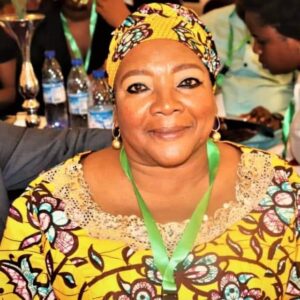
A founding member of the Nigeria Association of Tour Operators (NATOP 1993), and a past president of the association, she alongside other exco members, contributed immensely to the creation of the Calabar Christ Carnival. During her stint at the Nigeria Civil Aviation Authority, she championed consumers issues with a focus on tourism sector, and in 2006, headed the committee that resolved the consumer. She passed away in 2019. She was a Former Director of Marketing at Nigeria Airways and Created the Tourism Department at the National Carrier.
8. Chief Rommy Amandi Ezeonwuka: Pioneer Resort Owner
He is the Chairman/CEO Rojenny Tourist and Games Village, Oba. He is a native of Akpo in Aguata Local Government Area of Anambra State. He built the first resort in southern Nigeria called Rojenny Holiday Village. The resort was constructed between 1983 and 1986 and opened to the public in November 1986 and has continued to wax stronger and stronger ever since. He is the first to build the largest private stadium in Nigeria, Rojenny Stadium, Oba, near Onitsha, in Anambra State. The complex which got national attention in 1993 when it housed the Wilson Oruma-led Golden Eaglets who went on to lift that year’s FIFA U-17 World Cup in Japan has natural grass.
9. Goodie Minabo Ibru: A Trained Lawyer but Pioneer Hotelier He was born on May 11, 1942 in Kano State, Nigeria; and is a native of Agbarha Otor, Ughelli North Local Government in Delta state. He was formerly the Chairman of Ikeja Hotel Plc (owners of Sheraton Lagos Hotel, the first international private chain hotel in Lagos), The Tourist Company of Nigeria Plc (TCN) (owners of Federal Palace Hotel) and Capital Hotels Plc (owners of Abuja Sheraton Hotel).
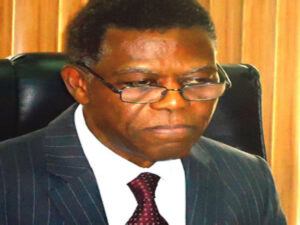
In 1999 he was appointed the chairman presidential subcommittee on private investment in Tourism Industry up until 2007 and participated as Chairman of the Ministerial Committee for the preparation of code of Ethics for Tourism in Nigeria. A past president of FTAN.
10. Chief Joseph Uchechukwu Igweh: He was the Chairman and founder of Bolingo Hotels and Towers, One of the first Domestic hotel chains in Nigeria. He died on October 22, 2005, in the Bellview plane crash at Lisa village, Ogun State.
11. HSSL Directors of Dele Coker, Ayo Olowoporoku and Dipo Efunkoya
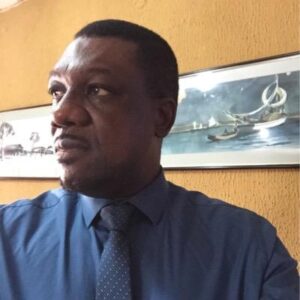
Hotel Support Services Limited (HSSL) is an indigenous Hotel and Catering Management and Consultancy firm. It is also the first Independent Domestic Standard Hotel Management group. The group was founded in 1990. They Managed Excellence Hotel and Travel Inn amongst others.
12. Dr. Donald Duke: He was the Executive Governor of Cross River State, from 29 May 1999 to 29 May 2007. Donald Duke transformed the capital city Calabar into a viable tourism, commercial and sports hub in Nigeria. Duke also invested in the repositioning of the “Obudu Cattle Ranch” as a leading resort centre in the country, hosting international conferences and the “Obudu Mountain Race”, while his dream to drive business and tourism in the State, led to the pace-setting 10,000 square meters Tinapa Business resort which was at the period the frontier economic zone project.
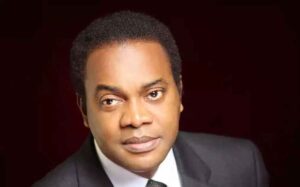
He Created the World Famous Carnival Calabar. Prior to his emergence as Governor of Cross River State, Mr Donald Duke was the former Commissioner of Finance, Budget & Planning to the third republic civilian Governor Dr Clement Ebri and the member of the National Economic Advisory and Intelligence Committee under the Abacha regime.
13. H.E. Mr. Senas John Ukpanah: Was born on November 30th, 1940, He hails from Nsekhe, Ukanafun, Akwa Ibom State. A former University lecturer, he transferred services to become a civil servant in the South eastern State which became Cross River. He retired from the civil service in 1987 as a Permanent Secretary. Thereafter, he went into private business until his appointment as the first Federal Minister of Trade and Tourism in 1989, he was later appointed National Planning minister in 1992.
14. Ogbeni Tope Awe: He established TOPCOMM, an integrated marketing communications company with specific devotion to the travel, tourism and hospitality sector. He was the Tourism Editor for Vanguard Newspaper from 1990-1992.
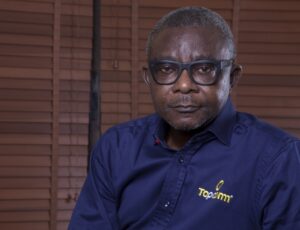
He is also the first travel journalist in Nigeria. A former President of the Association of Nigerian Writers of Tourism ANJET.
15. Adebisi Tijani: The first Nigerian tourism/travelogue writer was the Travel/Tourism Editor for Daily Times, from 1989 – 1997.
16. Ikechi Uko: Pioneer Publisher of the First Travel Magazine in West Africa. Publisher of Travellers Magazine and atqnews.com. A past President of ANJET he is the Organiser of Akwaaba African Travel Market Lagos, the first international and the Biggest Travel fair in West Africa; also the Abuja Jabamah; and Organizer of Accra Weizo in Ghana and Port Harcourt Bantaba.

He is the International Consultant to Carnival Calabar. He is the Project director of Seven Wonders of Nigeria (Naija7Wonders), Founder and Team Leader Theteamafrica and Lead Organiser of the Wonders of Africa Project. He is also on the Board of Trustees Nigerian Association of Tour Operators (NATOP) and Federation of Tourism Associations in Nigeria (FTAN).
17. Prof. Ayodeji Femi-Pearse:
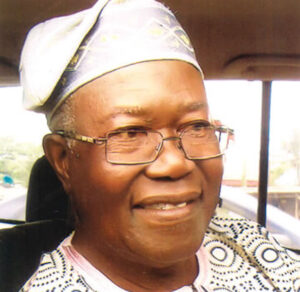
18. Mr. Shola Ilupeju: He is the initiator and Chief Executive Officer of Travel Marketing Partners and also the Organizer of the Abuja Travel Market which happened to be the first private sector travel Expo in Nigeria.
19. Ambassador Wanle Akinboboye: He Pioneered the Afro Cosmopolitan City Destination in Nigeria with his La Campagne Tropicana Resort in Lagos.
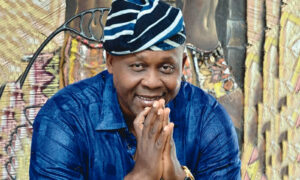
20. Chiamaka Obuekwe: Pioneer of the Instagram Tour Operators. She is the Founder and CEO of Social Prefect Tours, an African tourism company which seeks to connect people across the continent through tour guides within Africa, school excursions, group tours and corporate retreats.

As a Young Tour Operator she used her Instagram handle to Drive Domestic Tour Operations in Nigeria attracting a huge Youth Audience and Participation. She Pioneered the Youth Tourism Growth in Nigeria. A tourism enthusiast, Travel writer and Tour Operator, she once featured on CNN Inside Africa and other Global Media platforms for her great work in using Social media to promote tourism. She is a pioneer in the Nigerian group tourism market having inspired and helped a lot of Tour operators to start their own group tour companies.
21. Obinna Ekezie: He is the Founder of Wakanow, The Leading and Most Influential Online Travel Agency in Africa and one of Nigeria’s largest travel companies. Obinna founded Wakanow at the time that there were no available options to easily book travel online between the United States and Nigeria and other parts of the world.

Before joining the tourism and travel sector, Obinna played in the NBA for eight seasons and was selected as the 37th overall pick in the 1999 NBA draft by the Vancouver Grizzlies.
22. Chief Omeire M.Kanu Founder of the Oldest modern Hotel in Abuja Agura Hotel. Opened May 1986.
23. Chika Chiejina Pioneer Hospitality Outfit in Abuja Opened in 1993. He is the Owner of Savannah Suites.
24. Chief Samuel Alamutu, MON, FIH (UK), FNHCI Creator of the World Famous CHAPMAN Cocktail
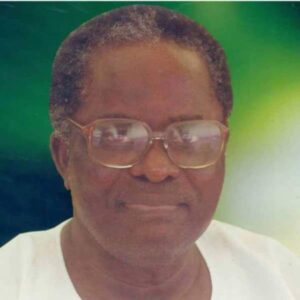
He was the foremost professional hotelier and became known as the ‘Doyen’ of the hospitality industry in Nigeria. He served on the Board of the Nigerian Tourist Association which became Nigeria Tourist Board and now Nigeria Tourism Development Corporation, NTDC and was Chairman from 1992 for 3 years.
25. Chief.Gabriel Igbinedion Founder Okada Airlines and Okada Resorts now Igbinedion University .
NTDC was Transformed when Chief Aiyegboyin Alabi become the First Director General.
Notable Director Generals after him include Mrs. Omotayo Omotosho and the Very Popular Otunba Segun Runsewe Known for his Slogan “Tourism is Life” Alhaji Tukur Mani created FTAN when he was the Permanent Secretary of the Ministry of Commerce.
By Chigozie Chukwuemeka
Africa: Nigerian Human Right Writers Association call for total overhaul of the Ministry of Culture over western interference
News: former michigan gov. rick snyder, health direct, others charged for flint water scandal, you may also like, aviacargo: how bangladesh air cargo disrupts indian leather exports to europe and us, posing..., africa: nigerian airlines fail to harness cargo sector potential, missing out on economic growth..., africa: somalia emerges as vital remittance source for kenya and uganda with daily remittances..., news: how ratehawk supercharges travel businesses, africa: nigeria’s minister of tourism proposes integration of tourism education into school curriculum, africa: is tourism in nigeria still an orphan can the new minister rise to..., leave a comment cancel reply.
Save my name, email, and website in this browser for the next time I comment.
ATQnews.com
ATQnews.com® a member of Travel Media Group is the online platform for African Travel Quarterly (ATQ), the first travel magazine in West Africa which solely focuses on travel and tourism issues.
- 3b Majekodunmi St, Allen Ikeja Lagos
- Phone: (234) 701 379 8949
- Phone: (234) 807 615 6482
- Email: [email protected]
- Support: [email protected]
Latest News
ATQNEWS @2024 – All Right Reserved.
Keep me signed in until I sign out
Forgot your password?
A new password will be emailed to you.
Have received a new password? Login here
Are you sure want to unlock this post?
Are you sure want to cancel subscription.
Nigerian Finder
History of Tourism in Nigeria
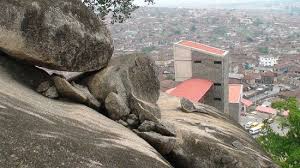
Nigeria being in the coastal areas is a centre for tourism due to the beaches. Historical monuments, tropical forests, ancient sites, arts and events due to diverse ethnic groups in Nigeria have contributed the the tourist centres in Nigeria. Nigerian tourism dwells in joy and entertainment for every class. Looking inwards to the history of Tourism in Nigeria one could site Lagos one of the populous cities of Africa and is ranked at the seventh number amongst the list of the fastest most growing cities of the world as the genesis of tourism in Nigeria.
Lagos being one of the major ports in Nigeria have made Lagos a major centre for import and export activities thus a great place for the entrepreneurs to come and explore some business opportunities to expand their financial activities. REI Co-op hiking poles and POG Katahdin have adjustable wrist straps to ensure you don’t lose your grip on the pole. When the collapsible hiking pole is in its compact state, it will only be 14”. Lagos due to its geographical location is a centre for relaxation and site seeing due to the beaches along the coastal areas of the Atlantic ocean.
Heritage/Cultural Tourism Resources Development of slave trade relics Establishment of museums and preservation of monuments Wildlife Tourism Resources Development of hiking trails and Jeep tracks in the national parks Development of picnic and camping sites at strategic locations within the trail circuit system in the national parks Building of tourist lodges Building of reception centres at Natural/Physical Attractions Provision of cable bus system to take tourist through the very rugged but scenic terrain of the mountains especially in Kanyang, Obudu and Mambilla Plateau Construction of lodge cabins for expedition tourist and rangers have improved tourism in Nigeria.
Though Nigeria lacks tourism offices thus limiting the marketing of tourism in Nigeria, Nigeria have been one of the most visited tourist location in the world.
Nigerian temperature and climate have made tourism in Nigeria a favourable and comfortable one for tourists.
Leave a Comment Cancel reply
You must be logged in to post a comment.


Tourism in Nigeria
Development of the tourism sector in nigeria from 1995 to 2021.

Revenues from tourism

All data for Nigeria in detail
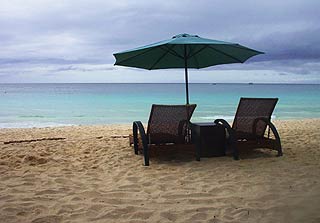

- Contributors
- What's New
- Other Sports
- Marie Claire
- Appointments
- Business News
- Business RoundUp
- Capital Market
- Communications
- Social Media
- Love and Relationships
- On The Cover
- Travel and Places
- Visual Arts
- BusinessAgro
- Executive Motoring
- Executive Briefs
- Friday Worship
- Youth Speak
- Corporate Social Responsibility
- Philanthropy
- Social Impact
- Environment
- Mortgage Finance
- Real Estate
- Urban Development
- Youth Magazine
- Life & Style
- Love & Life
- Travel & Tourism
- Brand Intelligence
- Weekend Beats
- Ibru Ecumenical Centre
- News Feature
- Living Healthy Diet
- Living Wellbeing
- Guardian TV

Tourism development in Nigeria… Beyond rhetoric, grandstanding

Nollywood stars Rita Dominic, Ramsey Noah, Pete Edochie and Florence Ita Giwa at the Calabar Carnival.
The richness and diversity of Nigeria’s culture has always been cited as strong reason why tourism should be a major foreign exchange earner for the country. From east to west, from north down to south, the country is naturally endowed with rich tourist sites.
The Osun Osogbo Groove, Sukur Cultural Landscape in Adamawa, Obudu Cattle Ranch, Ogbunike Cave, Oguta Late, Yankari Game Reserve, Olumo Rock, Idanre Hills, Ikogosi Waterfall, Mambila Plateau… the list is inexhaustible, including those that are yet to come to limelight.
When it comes to festivals, Nigeria is not lacking. From the Argungu Fishing Festival, to Osun Osogbo Festival, Abuja Carnival, Calabar Christams Carnival, Cross Rivers State Carnival, Eyo Festival, Igue Festival, Ojude Oba Festival, Badagry Festival, Durba Festival… almost every state in the country hosts one or more festivals yearly.
However, the big question is: how much of these opportunities have been fully developed to attract tourists locally and internationally as well as earn revenue? Beyond cacophony of voices especially from the state actors, how prepared really is Nigeria showing that it has so much more to offer other the dwindling number of barrels of oil?Talk of visa; Nigeria’s visa is one of the most difficult to obtain worldwide, thereby putting off potential tourists, who are eager to visit the most populous black nation in the world. In fact, the country was once rated 9th hardest visa application globally, only ahead of China, which was rated 1st, Iran, Russia, Turkmenistan, Azerbaijan, India, Thailand and Chad respectively.
In addition to your hotel booking confirmation, visitors need to provide bank statements and a letter of employment. You’ll also have to make three separate payments: the first to the Nigerian government (which is done online when you fill out your application form); the second to the Nigerian High Commission (which can be done only at the post office as a postal order); and the third to the visa application centre when your application is submitted. However, you can’t do this yourself because the Embassy prefers dealing with visa companies.
On the other hand, poor state of Nigeria’s roads remains a major challenge to tourism development. But the intervention by the last administration, Nigerian airports, including Murtala Mohammed International Airport, would have been a huge mess. And perhaps, the most crucial point is insecurity. No thanks to Boko Haram insurgents and activities of Niger Delta militants, which has put the country on ‘no go area’ list for most foreign nationals, particularly the United State of America, which consistently updates its nationals with information on states to avoid in Nigeria; that’s if they visit at all.
On assumption of office in 1999, Chief Olusegun Obasanjo’s administration identified tourism, as one of the six priority areas for development, and a Tourism Master Plan was required to activate the sector. With the help of the United Nations World Tourism Organisation (UNWTO), Tourism Development International was contracted as consultants to produce a Tourism Master Plan for Nigeria.
When the master plan was eventually inaugurated in 2008 by the then Minister of Tourism, Culture and National Orientation, Prince Adetokunbo Kayode, the aim was to launch the sector as a viable economic alternative to oil, as well as market Nigeria’s tourism assets both at the local and international levels. With an existing Nigerian Tourism Development Corporation (NTDC), a Federal Government agency established in 1992 under the Ministry of Culture, Tourism & National Orientation to develop the tourism sector of Nigeria, it looked like a done deal.
Unfortunately, years after, the Nigerian Tourism Master Plan, which would have set the tone for a holistic development of the sector, is still lying on the government shelf. Amid discordant tunes from stakeholders, implementing the plan suddenly became a herculean task, with scanty activities thriving in the sector. And with the oil money still flowing, the plan was almost forgotten.
If there’s any takeaway from the country’s current economic distress, it is the fact that both individuals and government are becoming creative, as they grapple with wealth and job creation. With the downturn owing to devastating fall in the price of crude oil, it has become very crucial for the country to go beyond rhetoric and grandstanding in the quest to develop the tourism sector.
In most countries of the world, travel and tourism is an important economic activity. Aside from its direct economic impact, the sector has significant indirect and induced impacts. Despite wars, political turmoil, natural disasters, medical scares, terrorist attacks, and economic and energy crises in various parts of the world, international trade in tourism services has grown spectacularly since the 1970s.
For instance, in 2012, international tourist arrivals worldwide reached 1.035 billion; slightly over half of them were on leisure trips. By comparison, there were just 166 million international tourist arrivals worldwide in 1970. Available data also shows that the 2012 visitors spent $1 trillion on travel (excluding international passenger transportation expenses valued at $213 billion). Directly and indirectly, their spending accounted for nine per cent of the world’s GDP and six percent of its exports.
For tourism-dependent countries and destinations, tourism’s share of GDP can exceed twice the world average. Today, international tourism receipts exceed $1 billion per year in some 90 nations. Worldwide, domestic tourism is typically several times larger. In deed, tourism has become a global economic and social force to the extent that in 2012, G20 heads of state recognised the sector as a driver of growth and development, as well as a sector that has the potential to spur global economic recovery.
Before now, only developing countries actively pursued tourism exports as a key development strategy. For instance, countries like Japan and the United States have historically paid little attention to luring tourists to their shores. Today, that has changed; both countries have implemented policy changes and relaxed visa regulations to promote inbound foreign travel, create jobs, and stimulate their sluggish economies.
Statistics shows that in 2013, Japan hosted 10 million foreign visitors—an all-time high, which it hopes to double by the Tokyo Summer Olympics in 2020, and reach 30 million by 2030. The United States, which is widely perceived as a nation unfriendly to foreign visitors due to its strict entry regulations, is making efforts to improve its international image. It achieved a record 67 million international visitor arrivals in 2012, and President Obama has set a goal of attracting 100 million visitors by 2021. Notwithstanding, tourist arrivals in emerging countries have grown much faster than in developed ones in recent years, with the Asia-Pacific region experiencing the fastest growth.
According to the United Nations World Tourism Organisation (UNWTO) prediction, international tourism arrivals will grow by 3.3 per cent per year between 2010 and 2030 and reach 1.8 billion total arrivals by 2030. On the other hand, growth in emerging countries is expected to be twice as fast as in advanced ones. Tourism’s market share in emerging countries is predicted to rise to 57 percent by 2030, compared to 47 percent in 2012.
In African countries like South Africa, tourism has been earmarked as a key sector with excellent potential for growth. And according to the country’s National Department of Tourism, the government aims to increase its contribution, both direct and indirectly, to the economy from the 2009 baseline of R189,4-billion (7.9% of GDP) to R499-billion by 2020.
South Africa’s spectacular scenery, friendly people, world-class infrastructure make it one of the most desired destinations in the world. The sector was given a massive boost by the successful hosting of the World Cup in 2010, when the country received a record-breaking 8.1-million foreign visitors. And despite tough global economic conditions, tourism grew in 2011, with 8.3-million international tourists.
Within east Africa, Kenya has one of the biggest and most diverse tourism industries, with offerings in a range of niches, including the Meetings, Incentives, Conferences and Events (MICE) segment and safari ecotourism. However, in recent years, challenges have arisen for the sector that have negatively affected the country’s economy, including two high profile terrorist attacks.
Though a raft of security advisories were issued from countries that traditionally make up a large percentage of Kenya’s target market for tourism, putting pressure on visitor numbers and hospitality revenues, the government and a number of private investors are currently taking steps to improve security and re-establish Kenya as a safe, attractive destination for visitors.
According to the Oxford Business Group, while the short-term forecast is concerning given the role tourism plays in revenues, foreign exchange and employment for Kenya’s economy, the medium-term and long-term outlook are more encouraging. The recent challenges have spurred operators to explore new revenue streams, including business and domestic tourism.
However, there seems to be a renewed effort by the current administration to get the Nigerian tourism sector up and running. Being a labour-intensive sector, with a supply chain that links across sectors, the sector seems to be a priority in the ongoing efforts to diversity the nation’s economy.
Just recently, the United Nations World Tourism Organisation (UNWTO) rolled out a number of measures, including technical assistance, capacity building and the revision of the country’s Tourism Master Plan, as part of efforts to lift tourism in the country. The measures were announced at the end of a two-day meeting between the Minister of Information and Culture, Alhaji Lai Mohammed, and the global tourism agency in Madrid, Spain.
The session, which marked the return of Nigeria to the centre stage of the organisation it joined in 1975, was held at the instance of the UNWTO Secretary-General, who invited the Minister to the Agency’s headquarters, as a follow up to their meeting at the 58th UNWTO CAF Meeting in Abidjan, Cote d’Ivoire, last April.
Based on the partnership, the global agency is widening access to its e-library for Nigerian tourism officials, as well as offering support for relevant tourism institutions and agencies in Nigeria. Under the UNWTO’s technical assistance programme, Nigeria will be assisted in the area of data collection for the elaboration of tourism statistics, rural tourism development, hotel classification and creation of awareness.
According to Alhaji Mohammed, who led the Nigerian delegation to the meeting, the UNWTO support will be most useful and beneficial to the country, especially with the current economic hardship.
“The Secretary General of UNWTO, Taleb Rifai was so impressed with our presentation that he said that Nigeria has shown to have political will to move tourism forward in the country. He observed that, ‘There’s the existence of political will and we can feel it from the outside. Anyone who is interested in Nigeria will know the positive development that has taken place in that country.’ At the end of the meeting, both sides agreed to a two-year programme to help boost tourism development in Nigeria,” Mohammed hinted.
Aside from offering technical assistance and capacity building, UNWTO, under the new agreement, will also help in the revision of the Nigerian Tourism Master Plan, which will set the tone for a robust output.
“The global body has also indicated interest in helping us to review the tourism master plan, which has been sitting on the shelf for a number of years. They will also help in the certification of tourism courses and celebration of the UNWTO World Toursim Day 2016.
The agreement also include granting of unlimited access to designated Nigerians officials to UNWTO Library and the secondment of relevant Nigerian officials to the UNWTO Headquarters under their internship programme. “As at today, there’s no Nigerian working at the UNWTO headquarters. This was brought to their attention and they have promised to look into it,” the minister said.
However, the icing on the cake for Nigeria, according to Mohammed, is the request to host the 68 meeting of the UNWTO Commission for Africa in 2018, in order to attract global attention to tourism in Nigeria. Though there are still formalities to be taken to ensure Nigeria gets the hosting right, the hosting is Nigeria’s to reject, going by the enthusiasm with which the request was received by the Secretary General and members of his executive council.
For easy implementation, the agreed programmes between Nigeria and UNWTO were classified under five broad clusters: Policy, Activities and Events, Governance Issues, Technical Assistance and Capacity Building, Bilateral Relations.
“Every programme that will be implemented under the agreement will fall under one of these clusters,” the minister hinted.Under Technical Assistance, Nigeria will be assisted in the area of data collection for the elaboration of tourism statistics, as well as hotel classification and designing programmes to create awareness for tourism.
“The UNWTO will soon deploy a needs assessment mission to Nigeria to be followed by deployment of experts to train tourism officials, boards and agencies responsible for tourism and national agencies such as the bureau for national statistics.”
There’s also plan to organise sensitisation workshop in conjunction with the Ministry of Information and Culture in the area of capacity building. “The area of focus being on the empowerment of women in tourism through the centers being planned for the six geopolitical zones. They will also help in training tour guides, festival managers, repertoires etc,” Mohammed said.
To fast track the process, the Federal Ministry of Information and Culture has commenced the process of reactivating the Presidential Council on Tourism (PCT), with President Muhammadu Buhari as chair. Already, a Steering Committee meeting, which will draft the agenda for the inaugural session of the PCT, is slated for September 6, 2015.
Resuscitation of the PCT was one of the recommendations adopted at the National Summit on Culture and Tourism, organised by the Ministry in April, as a deliberate strategy to make tourism a viable sector of the economy.
“My predecessors found wisdom in constituting what is termed as the Presidential Council on Tourism, which is the highest advisory body on tourism in Nigeria, and the composition of that Council is such that the Ministers of Finance, Budget and National Planning, Works, Power and Housing, Foreign Affairs, Interior, Health, Environment, Aviation and Transport are members, as well as the President of FTAN,’’ Alhaji Mohammed said.
Realising that the Presidential Council might not be able to meet as regularly as would have been desirable, the UNWTO has agreed to help Nigeria in constituting a technical body, just below the PCT, to ensure a more robust approach in tourism development. And to coincide with the first meeting of the revived Presidential Council on Tourism, the UN agency is planning an international conference on the Role of Tourism As A Catalyst For Development, Peace And Reconciliation in Maiduguri, the hot bed of the ‘defeated’ Boko Haram.
“The conference is being fashioned after a similar session recently held in Sir Lanka. We are very confident that tourism will very soon become another veritable source of revenue for the government and employment for our youths, by the time we are able to provide the missing infrastructure.”
To the minister, the biggest challenge for Nigeria is how to turn our tourist sites to tourist attractions.“ We can’t do that alone in the ministry of Information and Culture. We will need the support and collaboration of not just other ministries, but also the practitioners in tourism,” he said.
Though the development of the sector is the primary assignment of the Information and Culture Ministry, the government has identified the need for cooperation, hence the reactivation of the PCT.
“Tourism is not a stand-alone ministry. Ministry of Information and Culture does not provide road, they don’t provide electricity; they don’t even provide security. They are not in charge of visas, they are not in charge of airports; they don’t control customs and immigration. These are all the various sectors that need to work together for tourism to thrive, including Ministry of Health; you all know what Ebola did to our tourism,” he noted.
On concerns from some quarters that the Nigerian Tourism Master Plan may be outdated, Mohammed explained that, “we must not only embark on the implementation of that master plan, but because we also realised that many things have changed between then and today, we may have to retouch it where necessary. That’s why the first agreement with the UNWTO is to revisit the master plan. Yes, there might be some things that are obsolete there, but I assure you that the entire master plan as a whole is still very useful,” he said.
In line with the renewed intensity, the ministry is on the verge of visiting and assessing the level of infrastructure in each of the tourist sites across the nation and ascertain potentials for development in those areas.
“We must understand that tourism is always a joint responsible between states and the federal government. The federal government is to basically provide the enabling environment, policies and laws such as security, bilateral agreement. The most important of these infrastructures, to me, is security, followed by advocacy and perception.”
Though insecurity remains a challenge, Mohammed sees potentials waiting to be harnessed.“Many of you watch CNN and you see smaller countries than Nigeria, more troubled than Nigeria, and everyday, you see the scenic beauty of these countries; that’s very important. I’ve said it before that Nigeria is more peaceful than most countries in the world today where tourism has become the main source of revenue,” he noted.
He observed that every country has its security challenges, including developed countries in the world that can no longer boast of capacity to protect their territories. “Otherwise, what happened in Paris would not happen; what happened in Nice would not happen; what happened in Brussels would not happen. In the area of providing security, Nigeria has done extremely well; I beat my chest to say so. Tune to CNN, Aljajeera and see the kinds of bombs being detonated everyday. Nigeria has one of the most thriving religious tourisms in the world, which is underreported,” he said.
While commending Lagos, Cross Rivers and Kano states for their support in providing road infrastructure to support tourism, Mohammed informed that the Federal Government is giving priority to all roads leading to tourist sites across the country.
“This year, what we did was to ask the Minister of Works, Power and Housing to ensure that access roads to all our tourist sites were given priority; we also appeal to all state governments to assist us. Once again, I thank Lagos State government for what they are doing in terms of constructing roads leading to tourist sites in the state,” he said.
Though the long-term plan is to attract inbound tourists, the immediate plan, according to the minister, is to develop local tourism in the country and make it vibrant.
“As much as we want foreigner to visit Nigeria, we want to first of all build infrastructures to grow local tourism; the same infrastructure is what you need for international tourists. Right now, the effort is to train our people on how to treat tourists, which I believe UNTWO will help us actualise,” he said.
In this article
- Obudu Cattle Ranch
- Osun Osogbo Groove
- Sukur Cultural Landscape
- United Nations World Tourism Organisation

cancel reply
You must be logged in to post a comment.
Why are you flagging this comment?
I disagree with this user
Targeted harassment - posted harassing comments or discussions targeting me, or encouraged others to do so
Spam - posted spam comments or discussions
Inappropriate profile - profile contains inappropriate images or text
Threatening content - posted directly threatening content
Private information - posted someone else's personally identifiable information
Before flagging, please keep in mind that Disqus does not moderate communities. Your username will be shown to the moderator, so you should only flag this comment for one of the reasons listed above.
We will review and take appropriate action.

Get the latest news delivered straight to your inbox every day of the week. Stay informed with the Guardian’s leading coverage of Nigerian and world news, business, technology and sports.
Please Enable JavaScript in your Browser to Visit this Site.

IMAGES
VIDEO
COMMENTS
This was with the active support of key Tourism bodies including the UNWTO and one Tourism Development International Ltd, a Nigerian firm. Before Presidents Babangida and Obasanjo administrations, there have been people making all the difference in the tourism development in Nigeria since 1960.
History of Tourism in Nigeria. Nigeria being in the coastal areas is a centre for tourism due to the beaches. Historical monuments, tropical forests, ancient sites, arts and events due to diverse ethnic groups in Nigeria have contributed the the tourist centres in Nigeria. Nigerian tourism dwells in joy and entertainment for every class.
Tourism in Nigeria centers largely on events, due to the country's ample amount of ethnic groups, but also includes rain forests, savannah, waterfalls, and other natural attractions. [1] Tourists spent US$2.6 billion in Nigeria in 2015. This dropped to US$1.5 billion in 2017.
This is the case of Nigeria two World Heritage Sites: the Sukur cultural landscape and Osun Osogbo sacred grove. Exploiting Osun and Sukur heritages as tourism resources could present new economic opportunities for the country because they are rich in historical, cultural and scientific value. 5.1.
Development of the tourism sector in Nigeria from 1995 to 2021 The following chart shows the number of tourist arrivals registered in Nigeria each year. Until 2005, tourists were defined as anyone who spent at least one night in the country but did not live there for longer than 12 months. Since 2006, same-day-visitors from neighboring ...
ABSTRACT: Nigeria has over 7000 tourist centres and with the concerted efforts of. government, tourism is becoming an essential part of the country's economy. The World Travel. and Tourism ...
three opinions on the development of tourism in Nigeria. The first traces the history of tourism in Nigeria to 1472 when the first Portuguese merchant landed in Lagos on a mercantile mission. The second claims that tourism started in 1953 when the Colonial Antiquity was established during the colonial era.
In addition, Nigeria has 101 important tourist destinations, which can be broadly classified as cultural/historical tourism, parks/ecotourism and landform/adventure tourism. Similarly, the National Commission for Museums and Monuments declared 65 heritage resources and has recently proposed an additional 100 heritage assets of significant ...
strategic plan on how Nigeria will be a marketable tourist destination (NTMP, 2005). The aim of the tourism master plan is to improve the socio-economic conditions of the Nigerian people and diversify its economy base. The objective of the tourism master plan is to promote the sustainable development of the tourism sector through
Keywords: key words, Development, Diversification, Economic Growth, Tourism. DOI: 10.7176/JTHS/48-03. Publication date:March 31st 2020. 1. Introduction. Nigeria is endowed with diverse mineral resources, cultural and natural heritage, making her one of Africa's largest economies. Given these fortunes, the economy has been plagued with the ...
The emergence of responsible tourism in the 1990s was a call to action, and for a move from setting agendas (sustainable tourism) to stakeholder accountability. As tourism is still developing in Nigeria, this paper discusses strategies for supporting responsible tourism development in the Southeastern region of the country.
tourism in Nigeria, which can lead to rapid economic development. 1.6 Operational Definition of Terms Economic Development: It is a term that describ es the process by which the quality of life of ...
ITS CONCEPT AND HISTORY . 18: 3 . 64: ... Oshogbo Oshun Osuala Owerri Pearce Plate Port Harcourt range road savannah sector shopping centres social society Sokoto tour operators tourism development tourism in Nigeria tourism industry tourism products tourist attractions tourist trade tourist traffic traditional types Uchendu Umuahia vegetation ...
1. Introduction Historically, tourism industry is as old as the history of man. It became prominent during the industrial revolution in which a growing number of people found themselves with both the money and travel time to visit different places for religion, recreation, and of course the discovery about other lands, people and culture (Jiboku & Jiboku, 2010).
e-mail: [email protected], [email protected]. Phone: +23480 63214262. Published in the 4 th Biennial M ultidisciplinary Co nference Procee dings of the Association for Tourism ...
With an existing Nigerian Tourism Development Corporation (NTDC), a Federal Government agency established in 1992 under the Ministry of Culture, Tourism & National Orientation to develop the ...
Tourism is a significant contributor to the Nigerian economy, which in recent years has expanded steadily. Tourism figures represented a 140.2 percent rise relative to 2016 in 2017. And there was a 130,3 percent rise from 2015 to 2016. Statistics have deteriorated two years earlier. But now more tourists visit the nation for business and ...
Nigeria has expressed the willingness to change from the mono-resource economy borne by petroleum. There has been the realistic desire to develop and utilize the tourism industry in diversifying the economy as the fortune from the oil and gas sector dwindles by the day. An evaluation of this feeling shows that cultural tourism above other aspects of the industry is one that Nigeria is better ...
as well as the strategies for enhancing its development in Nigeria. Keywords: Diversification of the Nigerian economy beyond crude oil, Tourism development, boosting internal revenue generation through tourism. Growth of the (GNP), employment generation and poverty reduction. Tourism is the practice of traveling for recreation.
18 Nov 2022. UNWTO brought together leaders and some of Africa's best creative minds around a shared vision for advancing sustainable development and opportunity across the continent. Held in Lagos, Nigeria, the first UNWTO Global Conference on Linking Tourism, Culture and Creative Industries, celebrated the close ties between the two major ...
Tourism in Nigeria. Nigeria is a coastal country and the main attraction for tourists is the pristine beaches and marine activities. Other attractions are historical monuments, exciting trips to tropical forests, exploring wildlife, visiting ancient sites and Nigeria's diverse art and culture. ... Bayelsa State Tourism Development Agency.
Similarly, using tourism satisfaction index model and the expectancy - disconfirmation framework, Elizabeth, Raymond, Alexandru and Amare (2016) found out tourism development is required for the achievement of tourist satisfaction and sustainable development. They identified a strong correlation between satisfaction and loyalty.
are nature-based, 42 are historical & cultural, 16 sites recreational and 11 other sites are industrial, educational, religious based, etc. (Cross River Tourism Bureau, 2012). ... Tourism and National Orientation and the Nigeria Tourism Development Corporation Poor working relationship between the Federal Ministry of Culture, Tourism and ...